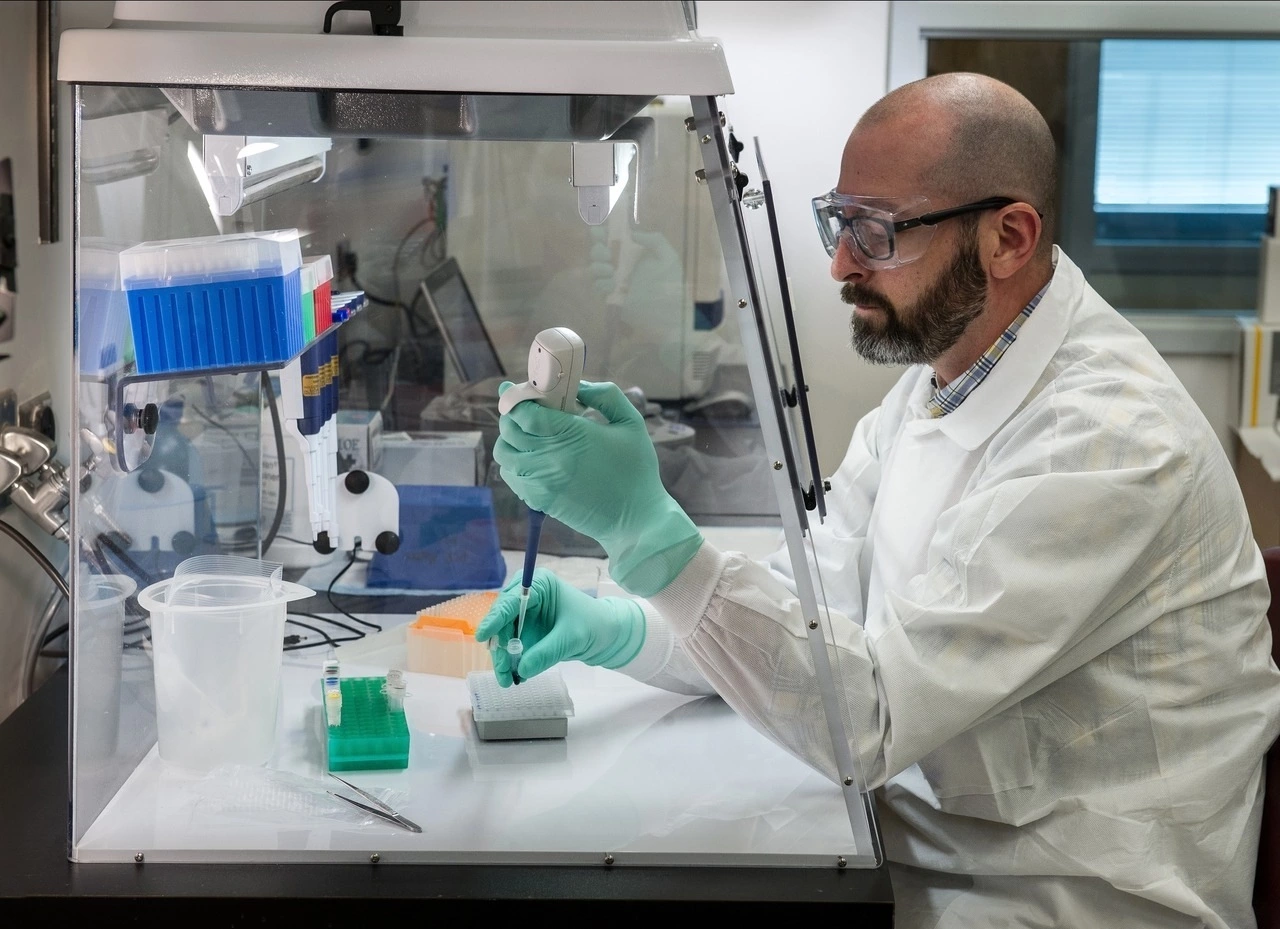Hungarian researchers make breakthrough discovery in cancer research

Hungarian researchers have discovered one of the causes of chronic fatigue, often experienced after radiation therapy, according to the Hungarian Center of Molecular Medicine Excellence. According to the announcement, patients suffering from cancer often experience chronic exhaustion and fatigue following radiation therapy. The previously prevailing belief was that this was due to an inflammatory state caused by the extensive cell death.
The process was led by Andrea L. Hermann, a doctoral candidate at the University of Szeged, and Lajos Vince Kemény, the head of the Hungarian Center of Molecular Medicine Excellence (HCEMM), Index reports.
Years of research
Their research was based on a previous observation made by Professor David E. Fisher from Harvard, who noted that exposure to ultraviolet radiation leads to the release of beta-endorphins. These, for example, regulate the body’s response to injury and stress and reduce the sensation of pain.
During nearly eight years of research conducted at partner institutions in the United States, it was revealed how the skin contributes to the development of fatigue following radiation therapy. Genetic and molecular studies showed that ionising radiation causes significant DNA damage in the skin, resulting in the release of endorphins. This released hormone indirectly affects the brain, leading to the development of chronic fatigue.
The significance of the findings lies in providing the first evidence of the influence of the skin on behavior following ionising radiation therapy. Furthermore, researchers say it opens up possibilities for the development of therapies that inhibit the effects of endorphins, thereby preventing fatigue.
New practices
Kemény Lajos Vince emphasised that a similar reaction occurs in the skin after exposure to UV radiation. This could explain why people feel tired after sunbathing. Based on the results, the use of drugs that inhibit the effects of endorphins may be considered for preventing this side effect in patients experiencing chronic fatigue after radiation therapy.
The Hungarian Centre of Excellence for Molecular Medicine (HCEMM) is an institute operating in multiple facilities. Their researchers contribute to healthier aging through pioneering procedures and therapeutic methods. The organisation aims to facilitate communication between academic and industrial sectors and contribute to improving the quality of life of Hungary’s aging population. They also aim to reduce healthcare costs by utilising the latest tools of molecular medicine.
Source: Index






Amazing that after 8 years they discovered that damage of the skin, human’s biggest organ, causes tiredness. Each person with eczema allover, psoriasis, could have told (confirmed) that.
What exactly is the breakthrough made in cancer research?